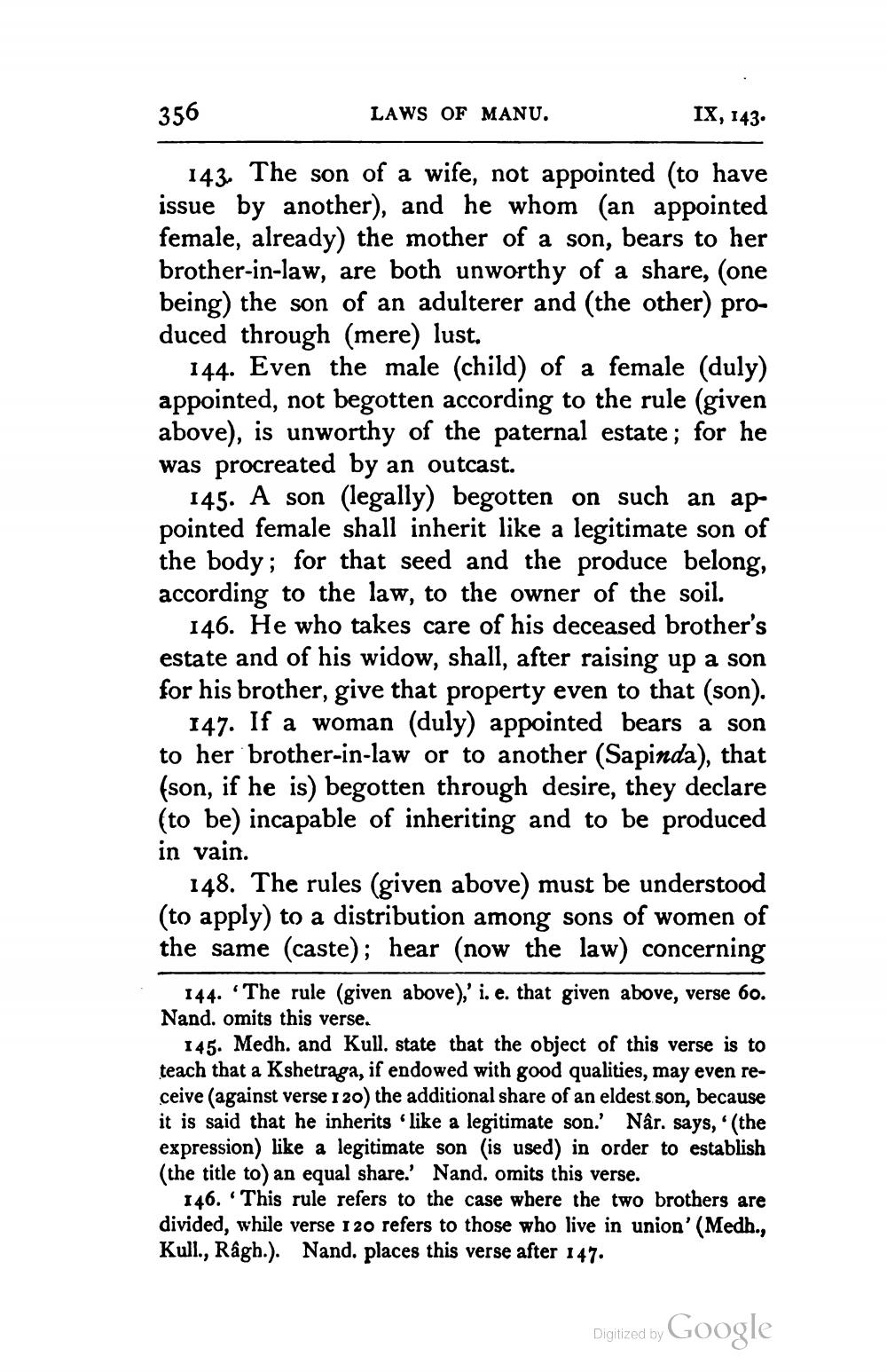________________
356
LAWS OF MANU.
IX, 143.
143. The son of a wife, not appointed to have issue by another), and he whom (an appointed female, already) the mother of a son, bears to her brother-in-law, are both unworthy of a share, (one being) the son of an adulterer and (the other) produced through (mere) lust.
144. Even the male (child) of a female (duly) appointed, not begotten according to the rule (given above), is unworthy of the paternal estate; for he was procreated by an outcast.
145. A son (legally) begotten on such an appointed female shall inherit like a legitimate son of the body; for that seed and the produce belong, according to the law, to the owner of the soil.
146. He who takes care of his deceased brother's estate and of his widow, shall, after raising up a son for his brother, give that property even to that (son).
147. If a woman (duly) appointed bears a son to her brother-in-law or to another (Sapinda), that (son, if he is) begotten through desire, they declare (to be) incapable of inheriting and to be produced in vain.
148. The rules (given above) must be understood (to apply) to a distribution among sons of women of the same (caste); hear (now the law) concerning
144. "The rule (given above),' i. e. that given above, verse 60. Nand. omits this verse.
145. Medh. and Kull, state that the object of this verse is to teach that a Kshetraga, if endowed with good qualities, may even receive (against verse 1 20) the additional share of an eldest son, because it is said that he inherits 'like a legitimate son.' Når. says, ' (the expression) like a legitimate son is used) in order to establish (the title to) an equal share.' Nand. omits this verse.
146. This rule refers to the case where the two brothers are divided, while verse 1 20 refers to those who live in union' (Medh., Kull., Râgh.). Nand. places this verse after 147.
Digitized by Google




